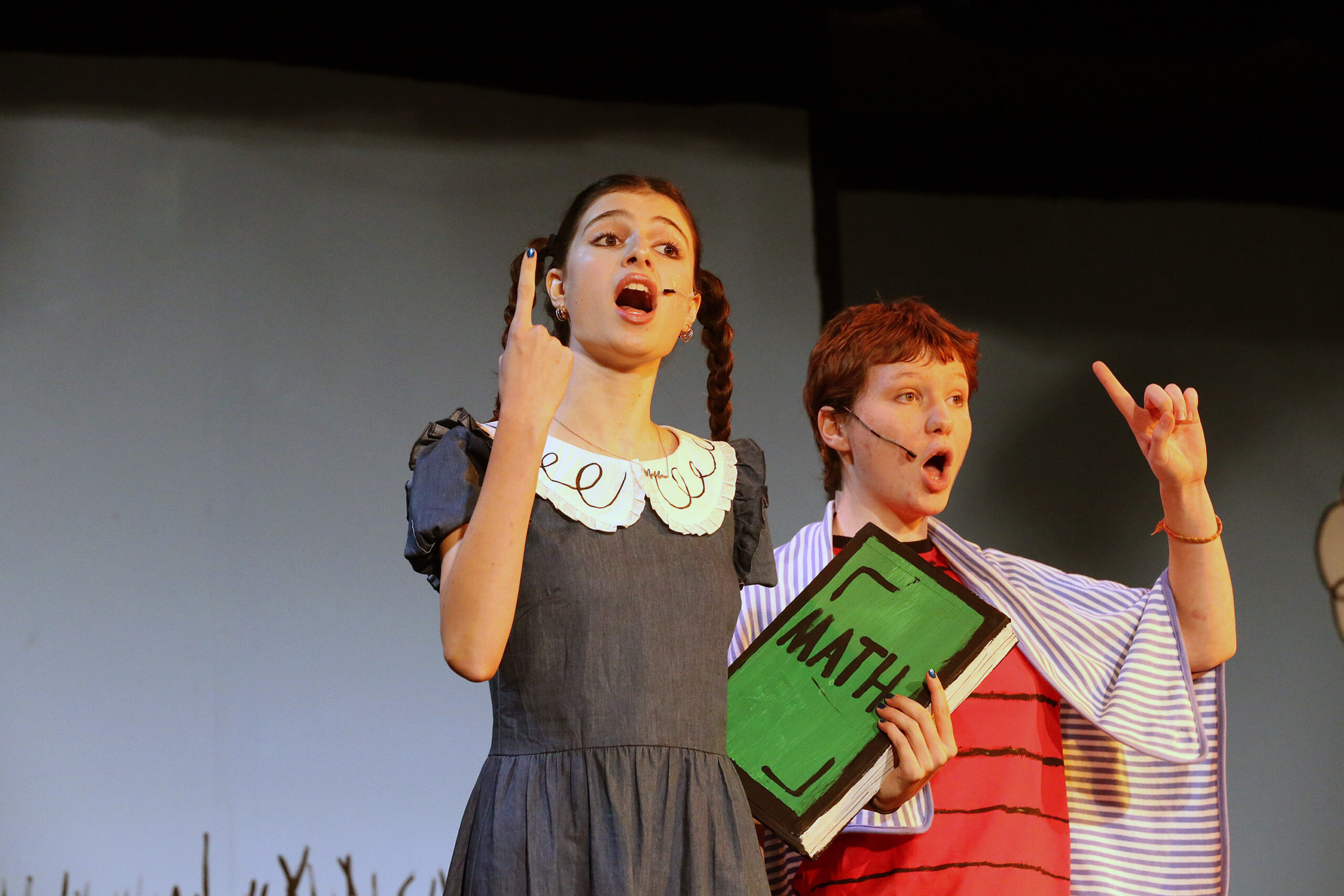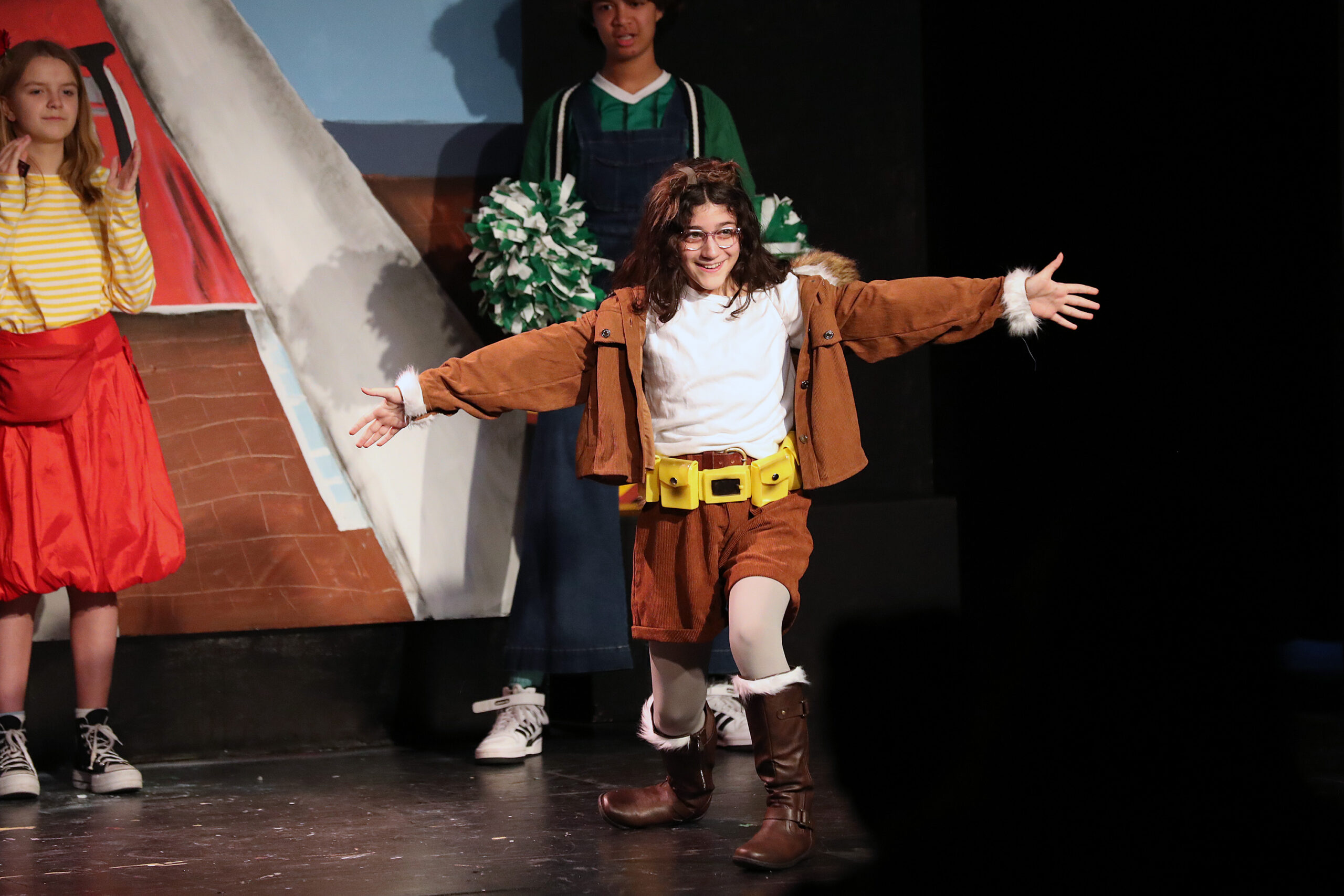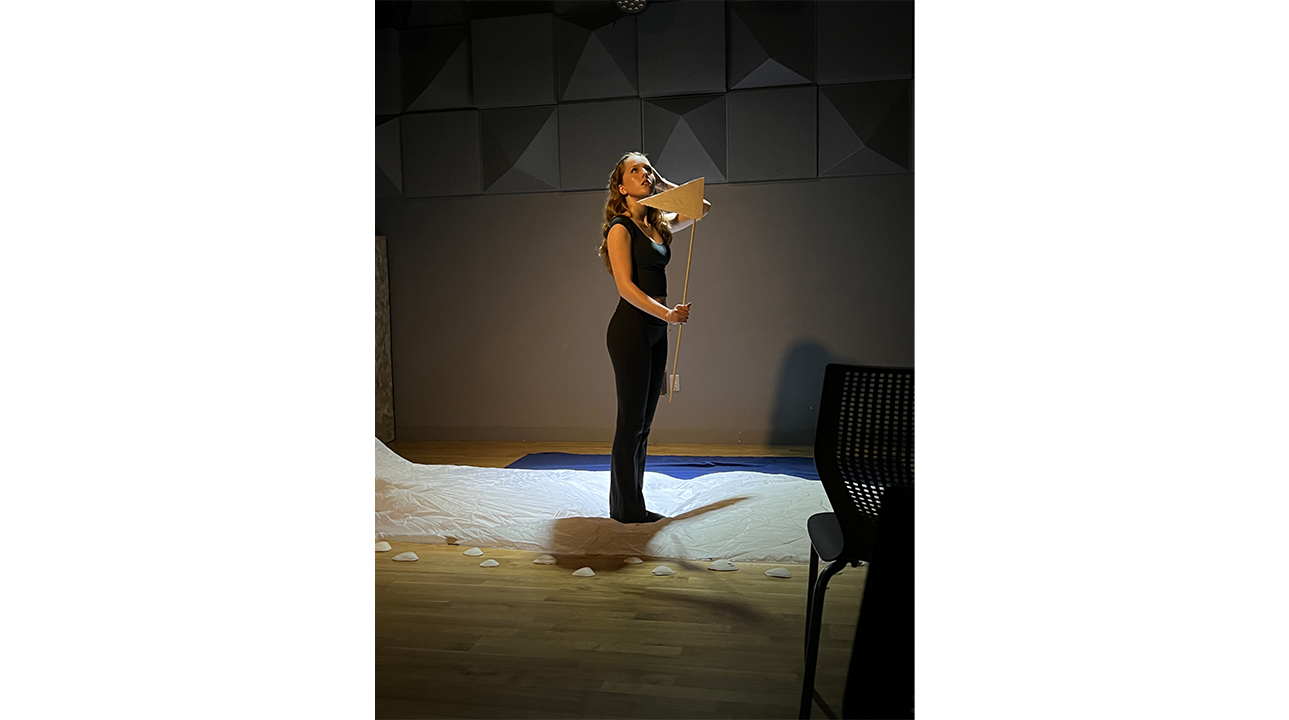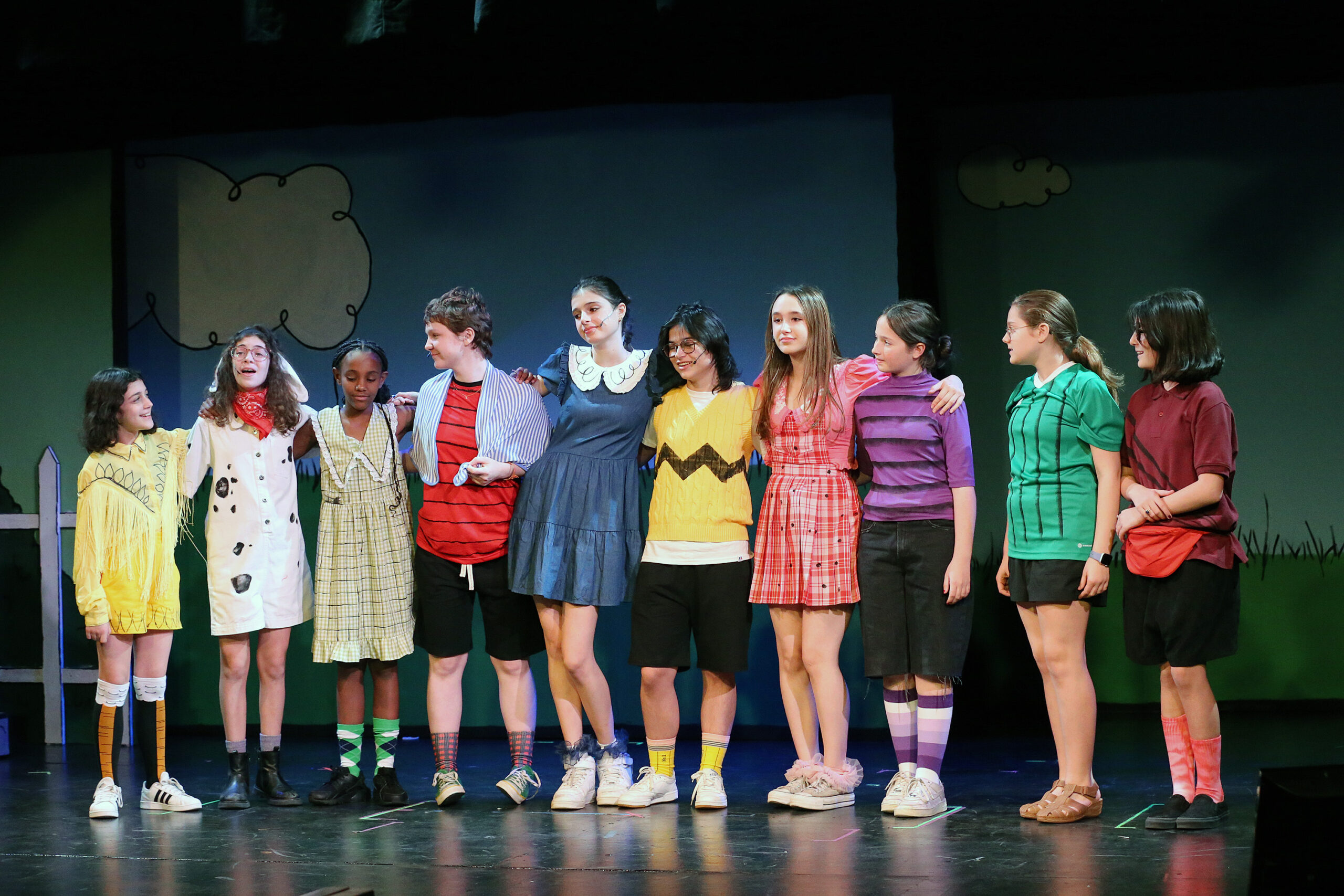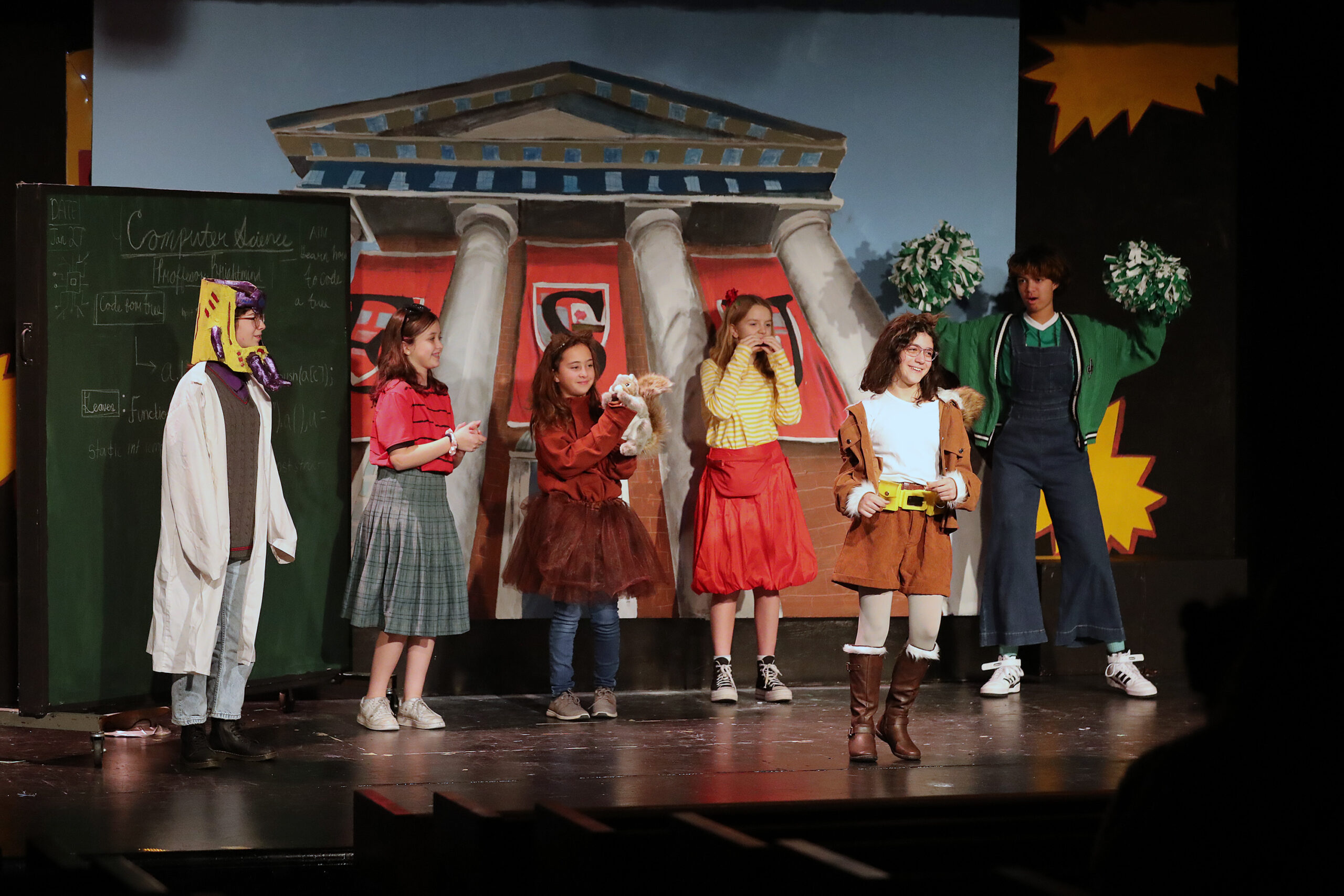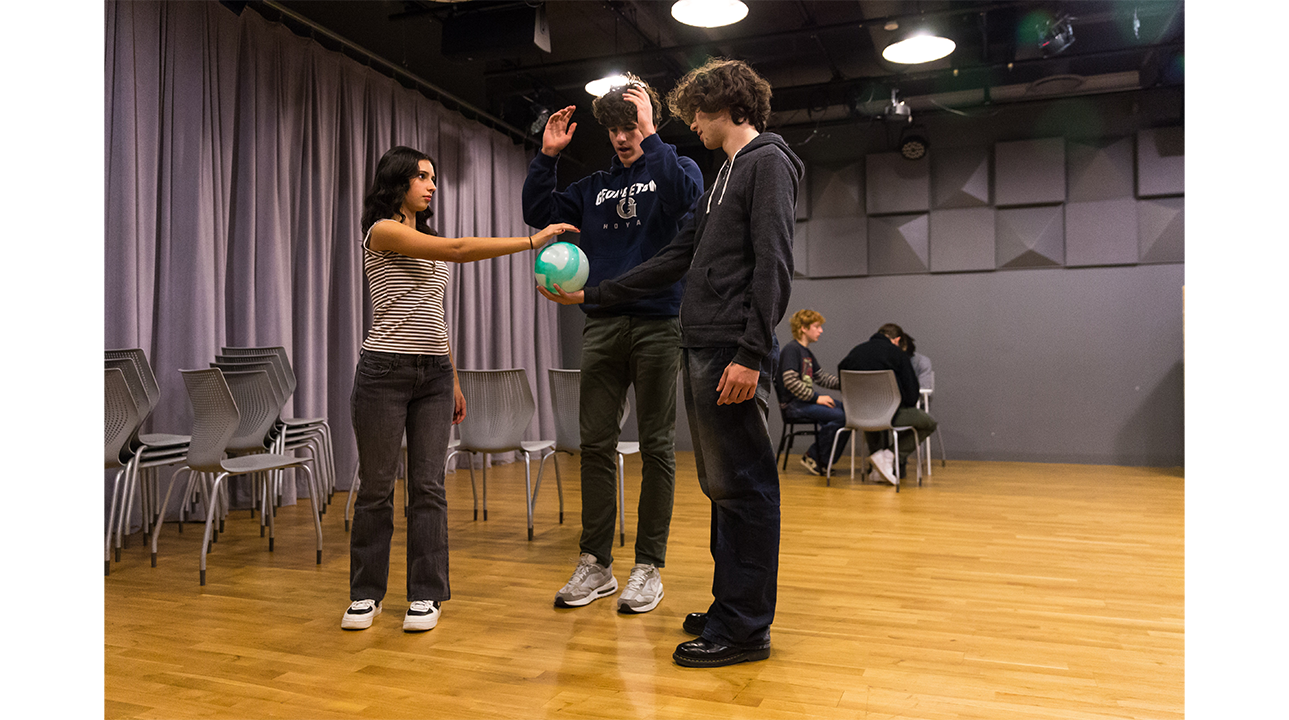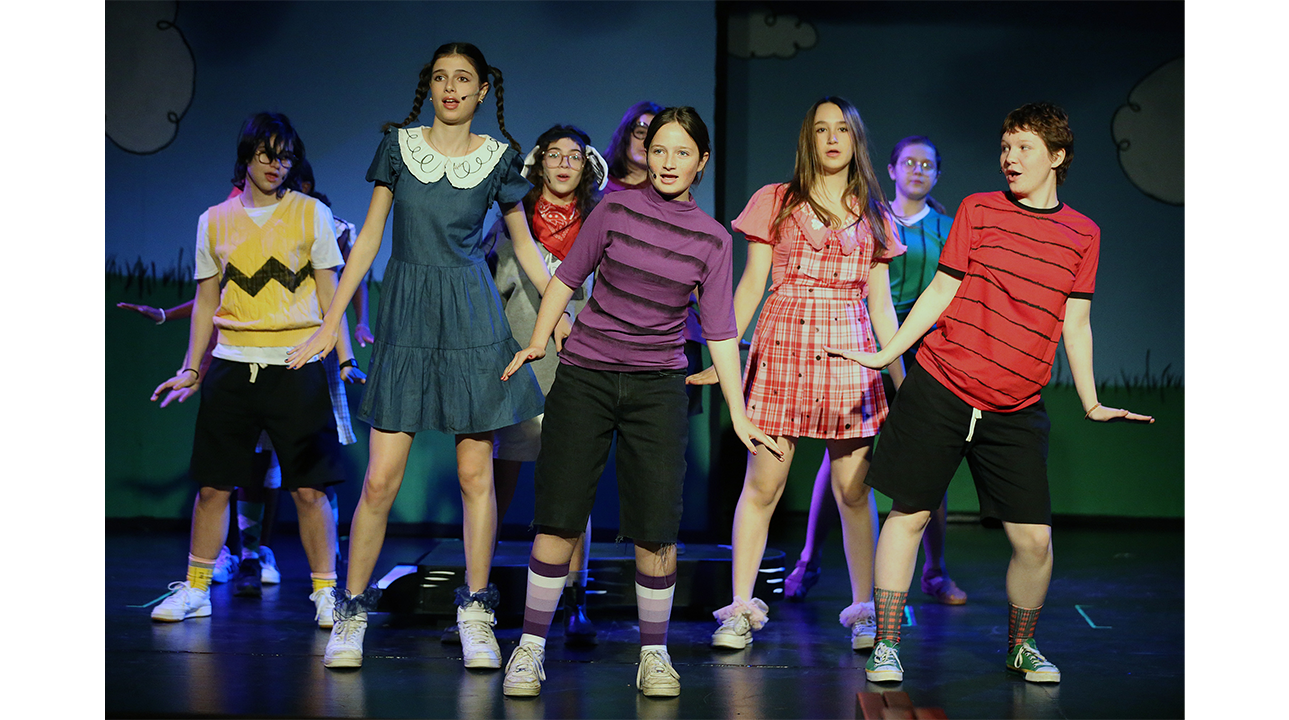Drama & Theater
From Cooperative Games to Theatrical Texts
In the theatre program, students develop their bodies and voices as actors, playwrights, designers, and technicians. They learn to interpret and communicate ideas and feelings through characterization, improvisation, scene work, and writing. They gain focus and physical awareness while developing critical thinking, concentration, and observation skills.
Our students begin to learn acting technique in lower grade levels through cooperative game playing. As they move on to more advanced classes, they explore theatrical styles and texts, directing, the performance of original material, and design concepts. Students apply what they learn in their classes to extracurricular performances throughout the year.
Middle School Drama
In sixth grade drama class, students are introduced to the basic skills of performance and learn how the body and voice are used as a dramatic instrument. They develop teamwork skills through ensemble work, group games, and improvisation. Seventh and eighth grade drama curriculum includes pantomime, projection, articulation, expression, and interpretation. Students work as individuals and as members of an ensemble to hone their rehearsal and performance skills through theatre games, improvisation, scripted performance, and original work. They perform monologues, scenes or narrative adaptations.
Upper School Theatre
In ninth & tenth grades students develop an understanding of the theater by investigating and experiencing the roles of actor, director, designer, playwright, and dramaturge. They participate in vocal and physical exercises, scene work, and play analysis, and are required to read and discuss texts, conduct research, memorize scenes, create original pieces, and reflect on their theater experiences through writing and group discussion.
In 11th and 12th grade theatre courses, students investigate the histories and texts of various theatrical traditions from around the world and strive to understand the historical and cultural contexts that produced these traditions. In past years, International Baccalaureate (IB) students studied Kabuki Theatre and experimented with Kabuki-style make-up. They sought inspiration in an exhibition of sculpture at the Museum of Modern Arts (MoMA) and wrote original short scenes. They pitched, directed, and performed an abridged version of the Greek Comedy Lysistrata, set during the American Civil War.

